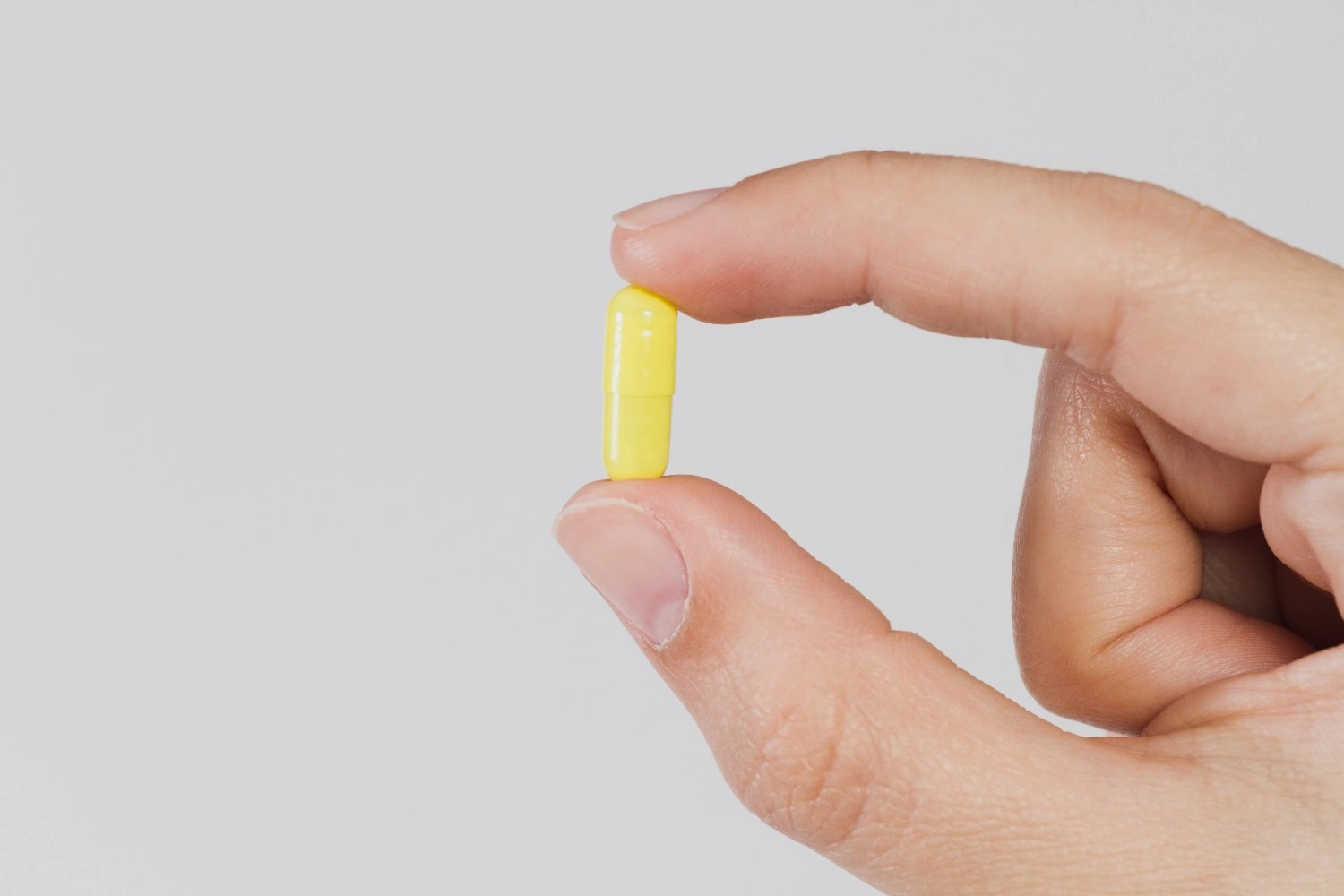Table of Contents
There's a common phenomenon among adults these days. A lot of them, even when they're doing everything healthily right—eating clean, resting, exercising, and even tracking their macros—unfortunately still find their blood sugar and belly fat not budging.
Moreover, many aging adults are suffering from metabolism shifts and hormone fluctuations. Some are dealing with maintaining steady energy and a healthy weight as these things start to feel like an uphill climb.
Because of this, thousands of them, especially in their 40s, 50s, and beyond, are turning to berberine for a rescue. If you're not familiar with the term, berberine is a natural plant compound often called “nature’s Ozempic.” Berberine helps impact blood sugar, cholesterol, and stubborn weight.
Once used mainly in traditional medicine, it’s now one of the most researched natural compounds for blood sugar control, heart health, and fat metabolism. And a favorite among health-conscious adults aged 35 to 60.
Great remedy, right? Of course! Now the question is, should you take it on an empty stomach?
The answer isn’t one-size-fits-all. It depends on your goals, tolerance, and how your body reacts.
This guide breaks down the science of timing, tolerance, and absorption so you can make berberine work smarter for you, not against you.
Key Takeaways
You can take berberine on an empty stomach, but some people experience nausea or cramps.
For most, taking it 20–30 minutes before meals works best for managing blood sugar and cholesterol.
Taking berberine with meals can ease digestion and boost absorption when paired with healthy fats.
Start small and increase gradually for optimal results.
Always check with your doctor if you’re on prescription medications.
Can You Take Berberine on an Empty Stomach?
-v1762195253243.webp) Yes! But it’s not for everyone. Some people find berberine easier to absorb without food, while others notice mild stomach upset.
Yes! But it’s not for everyone. Some people find berberine easier to absorb without food, while others notice mild stomach upset.
Because berberine’s absorption is naturally low, pairing it with healthy fats may improve uptake, while specialized forms like berberine phytosome are formulated to absorb efficiently even when taken alone.
The best approach? Start with food, observe how your body responds, and only then test empty-stomach timing.
Pro Tip: Begin with 300–500 mg once daily with a meal, then gradually transition to pre-meal or fasting use if tolerated.
Why Timing Matters for Berberine
Your body’s rhythm, from digestion to metabolism, affects how well berberine performs.
That’s why timing is key for optimizing absorption, comfort, and metabolic impact.
Most experts recommend splitting your total daily dose into two or three servings, since berberine has a short half-life in the body.
Empty Stomach Benefits
Taking berberine on an empty stomach may enhance certain metabolic effects.
People who practice intermittent fasting sometimes choose this timing to support fat metabolism. Some supplement forms designed for higher absorption may also work best without food.
However, the downside is that it may irritate the stomach lining, especially in sensitive people.
Before Meals (20–30 Minutes)
This is one of the most widely recommended schedules. Taking berberine 20 to 30 minutes before a meal can help blunt the rise in blood sugar and lipids that follows eating (1).
Clinical studies often use this timing, and many find it strikes a balance between effectiveness and comfort.
With Meals
If you tend to get an upset stomach from supplements, taking berberine with food is the gentlest approach.
A meal, especially one that includes healthy fats, helps buffer irritation and may even improve absorption since berberine is fat-soluble.
This timing also makes it easier to remember, since you can tie your doses to regular eating times.
Potential Side Effects on an Empty Stomach
While berberine is generally well-tolerated, taking it on an empty stomach can sometimes trigger mild digestive issues such as nausea, cramping, or loose stools.
This happens because, without food to buffer it, berberine may slightly irritate the stomach lining.
For most people, these effects are temporary and dose-dependent, but they can make it harder to stay consistent if you’re just starting out.
If you notice any discomfort, lower your dose or switch to taking berberine with meals, especially meals that include healthy fats like olive oil, avocado, or salmon, which can also improve absorption.
Possible side effects include:
Nausea or queasiness shortly after taking a dose
Mild stomach cramps or abdominal discomfort
Loose stools or diarrhea in sensitive people
Lightheadedness if combined with fasting or long periods without food
Best Practices for Taking Berberine
 The key to success with berberine isn’t just when you take it—it’s how you take it consistently.
The key to success with berberine isn’t just when you take it—it’s how you take it consistently.
Here are simple, science-backed habits that help maximize results:
Start low and go slow. Begin with 300–500 mg once daily, then increase gradually to 500 mg two or three times daily.
Split your doses. Because berberine has a short half-life, smaller, frequent doses maintain steadier effects throughout the day.
Take before meals when possible. This is the most effective timing for blood sugar and cholesterol control.
Pair with food if you’re sensitive. A meal that includes healthy fats can buffer irritation and enhance absorption.
Stay consistent. Tie your doses to routine moments (like breakfast or dinner) so it becomes effortless.
Check for interactions. Berberine may amplify the effects of medications for blood sugar or blood pressure—so always confirm with your doctor first.
Pro Tip: Many users combine berberine with Resveratrol or NMN for enhanced metabolic and cellular support. These compounds work synergistically to support energy, balance, and healthy aging.
Who Should Avoid Taking Berberine on an Empty Stomach
-v1762195514238.webp) If you have a sensitive stomach or any digestive condition, it’s best to avoid taking berberine without food. Empty-stomach use can increase the risk of nausea or mild irritation.
If you have a sensitive stomach or any digestive condition, it’s best to avoid taking berberine without food. Empty-stomach use can increase the risk of nausea or mild irritation.
You should also avoid berberine entirely if you are:
Pregnant or breastfeeding (safety has not been established)
Under 18 years old
Taking blood sugar–lowering or blood pressure medications without medical supervision
If you’re new to berberine, start by taking it with meals. Once your body adjusts, you can experiment with pre-meal or fasting use to see what works best for you.
How to Decide What Works Best for You
Berberine isn’t one-size-fits-all. The right timing depends on your body, your goals, and your comfort level.
Ask yourself:
Are you using it for blood sugar control? → Take it 20–30 minutes before meals.
Is your stomach sensitive? → Start with meals and assess tolerance.
Are you using advanced forms (like berberine phytosome)? → Empty-stomach dosing may be fine.
Do you struggle with consistency? → Tie doses to daily routines like breakfast or dinner.
Remember: what matters most isn’t the perfect schedule; it’s steady, long-term use paired with healthy habits.
Keep this in mind…
Berberine can be taken on an empty stomach, before meals, or with meals; the best choice depends on your comfort, goals, and lifestyle.
For most people, taking it 20–30 minutes before meals offers the ideal balance between absorption and comfort.
If you’re new to it, start with food, go slow, and build your way up. Over time, you’ll discover what your body prefers.
When used consistently and responsibly, berberine can become a cornerstone of your metabolic and longevity routine, helping support stable blood sugar, balanced energy, and healthy weight from within. And never forget to talk to your healthcare provider if you’re on other medications.
Take the next step:
If you’re looking for a clean, research-backed berberine formula designed for real results, explore OMRE’s supplement range, built for adults who take their health—and their time—seriously. Want to stay ahead of the latest breakthroughs in longevity and metabolic health?Subscribe to our email for evidence-based tips, new product updates, and exclusive wellness insights, straight to your inbox.
Want to stay ahead of the latest breakthroughs in longevity and metabolic health?Subscribe to our email for evidence-based tips, new product updates, and exclusive wellness insights, straight to your inbox.



